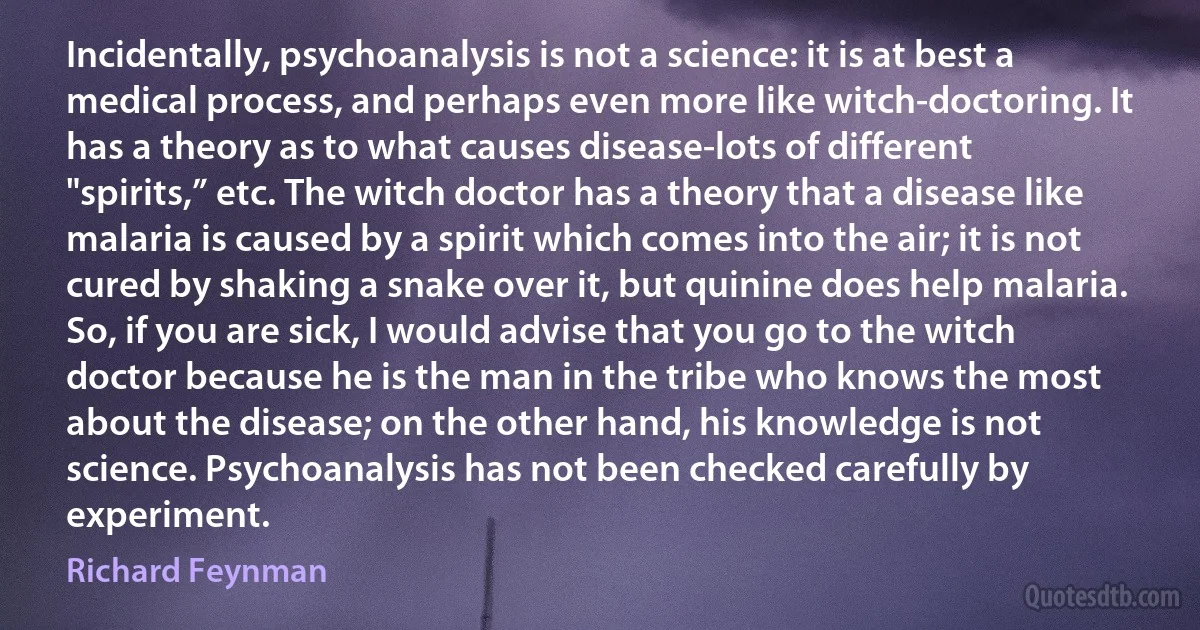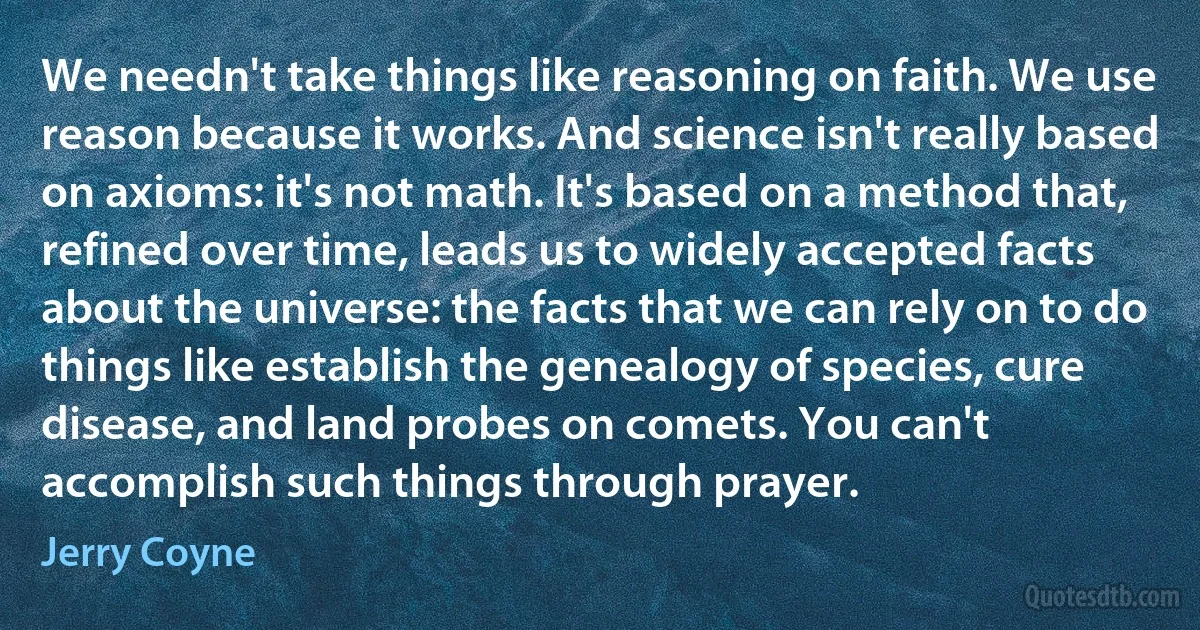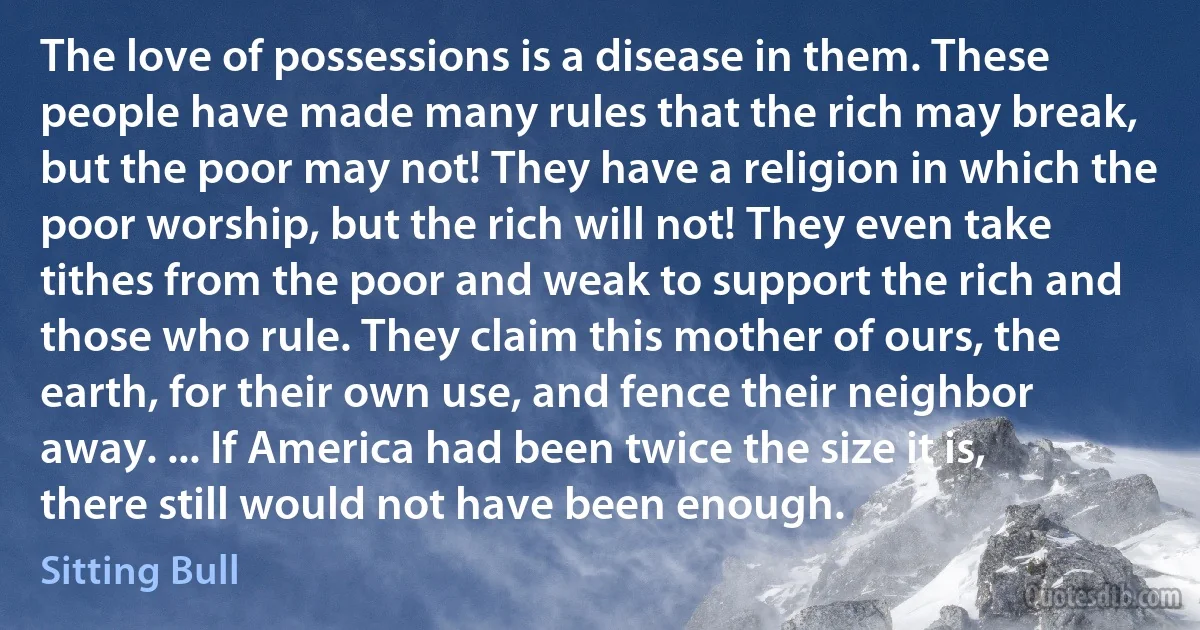Disease Quotes - page 22
Any fool can destroy trees. They cannot run away; and if they could, they would still be destroyed - chased and hunted down as long as fun or a dollar could be got out of their bark hides, branching horns, or magnificent bole backbones. Few that fell trees plant them; nor would planting avail much towards getting back anything like the noble primeval forests. ... It took more than three thousand years to make some of the trees in these Western woods - trees that are still standing in perfect strength and beauty, waving and singing in the mighty forests of the Sierra. Through all the wonderful, eventful centuries ... God has cared for these trees, saved them from drought, disease, avalanches, and a thousand straining, leveling tempests and floods; but he cannot save them from fools - only Uncle Sam can do that.

John Muir
Dearest,
I want to tell you that you have given me complete happiness. No one could have done more than you have done. Please believe that.
But I know that I shall never get over this: and I am wasting your life. It is this madness. Nothing anyone says can persuade me. You can work, and you will be much better without me. You see I can't write this even, which shows I am right. All I want to say is that until this disease came on we were perfectly happy. It was all due to you. No one could have been so good as you have been, from the very first day till now. Everyone knows that.
V.

Virginia Woolf
At the very beginning of my fevers and sicknesses that cast me down, whilst still entire, and but little, disordered in health, I reconcile myself to Almighty God by the last Christian, offices, and find myself by so doing less oppressed and more easy, and have got, methinks, so much the better of my disease. And I have yet less need of a notary or counsellor than of a physician.

Michel de Montaigne
And the clergy said, 'Certainly, you're quite right; the disease is awful. Therefore, the only way is to let it alone. Amen. A contribution will now be taken up to extend Gospel privileges to the Philippine Islands'. The abolitionists retorted by declaring that you might as well let fire alone, by telling the free States that they were bound to thrust back fugitives, and were, therefore, themselves the mere bloodhounds and slaves of slavery, which could only live by expansion, and only wanted to be let alone to become impregnable.

George William Curtis
I am SO tired of this trope. It may indeed be the case that we can't justify a priori via philosophical lucubrations that we arrive at the truth about nature only by using the methods of science. My answer to that is increasingly becoming, "So bloody what?” The use of science is justified because it works, not because we can justify it philosophically. If we are interested in finding out what causes malaria, no amount of appeal to a deity, philosophical rumination, listening to music, reading novels, or waiting for a revelation will answer that question. We have to use scientific methods, which, of course, is how causes of disease are found.

Jerry Coyne
In another moment I had scrambled up the earthen rampart and stood upon its crest, and the interior of the redoubt was below me. A mighty space it was, with gigantic machines here and there within it, huge mounds of material and strange shelter places. And scattered about it, some in their overturned war-machines, some in the now rigid handling-machines, and a dozen of them stark and silent and laid in a row, were the Martians-dead!-slain by the putrefactive and disease bacteria against which their systems were unprepared; slain as the red weed was being slain; slain, after all man's devices had failed, by the humblest things that God, in his wisdom, has put upon this earth.

H. G. Wells
I had to act with the utmost circumspection to save myself from the suspicion of insanity. My memory of the Law, of the two dead sailors, of the ambuscades of the darkness, of the body in the canebrake, haunted me; and, unnatural as it seems, with my return to mankind came, instead of that confidence and sympathy I had expected, a strange enhancement of the uncertainty and dread I had experienced during my stay upon the island. No one would believe me; I was almost as queer to men as I had been to the Beast People. I may have caught something of the natural wildness of my companions. They say that terror is a disease, and anyhow I can witness that for several years now a restless fear has dwelt in my mind, such a restless fear as a half-tamed lion cub may feel.

H. G. Wells
When you analyse it carefully, it is about a family's ability to stay together and have time together. We all know, with our fractured lives in this place, how difficult it becomes when we as human beings cannot spend time with one another. However, the problem is that these industrial relations laws now set that disease in place right across the nation in every workplace, in every part of the country. What I fear most of all is the ultimate impact of this on the fabric of Australian family life.

Kevin Rudd
... to put an end to the epidemics, we were forced to burn the bodies of an incalculable number of people who were destroyed by the disease. So we were forced to build crematoria, and on this account they are loosing a bond for us. "He also stated that he punished the culprit if the atrocities occurred in the camps." On the Einsatzgruppen: "The war on the Eastern front made the demands more difficult for our soldiers. A terrible climate, never-ending distances, an enemy population and constantly apparent partisans. Just because it was difficult, the troops prevailed. So they were forced to destroy entire villages if there was resistance and gunfire from such a village. Russians are not ordinary enemies, we can not understand their mentality. In the most desperate situations, they would refuse to capitulate. If, because of these difficulties in the East, the Jewish people suffered large casualties, it must be remembered that the German people also suffered severely."

Heinrich Himmler



